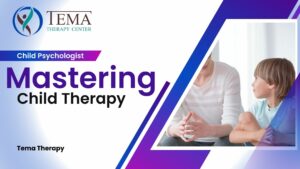Child therapy plays a vital role in supporting the healthy emotional, cognitive, and social development of children. Specialists in child psychology and family psychotherapy emphasize that using the right therapeutic techniques can create meaningful, lasting change. This guide explores essential approaches that child therapists use to help children navigate challenges and strengthen their overall well-being.
Creating a Safe Space: Building Rapport and Trust
A strong therapeutic relationship forms the foundation of effective child therapy. Therapists work to create a warm, safe, and nonjudgmental environment where children feel comfortable expressing themselves. Active listening, empathy, and consistent emotional support help build this trust.
Therapeutic Play: Healing Through Play
Play therapy is one of the most widely used approaches in child counseling. Through play — a child’s natural language — therapists gain insight into emotions, experiences, and internal conflicts. Both directive and nondirective play methods allow sessions to be tailored to each child’s needs, encouraging emotional expression and cognitive growth.
Cognitive Restructuring: Empowering Healthy Thinking
Cognitive Behavioral Therapy (CBT) helps children identify unhelpful thoughts and replace them with more balanced, realistic beliefs. CBT strategies can be effective for managing anxiety, depression, behavioral issues, and emotional regulation challenges.
Expressive Arts: Art and Creative Therapies
Art therapy enables children to communicate feelings that may be difficult to verbalize. Activities like drawing, painting, and sculpting give children a safe outlet for emotional expression and processing. These methods are especially valuable for children who have experienced trauma or struggle with communication.
Exploring Sand Tray Therapy
In sand tray therapy, children create scenes using miniature figures and a sandbox. This hands-on approach helps reveal subconscious thoughts and emotional patterns. It provides a gentle way for children to explore internal experiences that may not surface through conversation alone.
Mindfulness and Relaxation Techniques
Mindfulness practices such as deep breathing, guided imagery, and grounding exercises help children build self-regulation skills. These techniques reduce stress, support attention control, and can be especially helpful for children coping with anxiety or ADHD-related symptoms.
Writing and Journaling for Emotional Insight
Expressive writing encourages children to process their emotions through journaling or storytelling. This technique strengthens emotional literacy and provides a healthy outlet for coping with overwhelming feelings.
Parent-Child Interaction Therapy (PCIT)
PCIT involves coaching parents to strengthen their relationship with their child while implementing effective behavioral strategies. This collaborative approach enhances communication, reduces behavioral difficulties, and improves overall family dynamics.
Trauma-Focused Cognitive Behavioral Therapy (TF-CBT)
TF-CBT is designed for children who have experienced trauma. By combining CBT principles with trauma-sensitive interventions, this approach helps children process difficult memories, develop coping skills, and rebuild emotional safety.
Filial Therapy: Strengthening Family Relationships
Filial therapy trains parents to conduct structured therapeutic play sessions at home. This empowers caregivers to take an active role in their child’s emotional healing and fosters a deeper sense of connection and security.
Developing Social Skills
Social skills training helps children learn how to communicate effectively, resolve conflicts, read social cues, and build healthy friendships. These skills are essential for success at school and in day-to-day interactions.
Narrative Therapy: Reframing Personal Stories
Narrative therapy encourages children to externalize problems and reframe their personal stories in empowering ways. This helps them develop a stronger sense of identity and build emotional resilience.
Solution-Focused Therapy: Building on Strengths
Solution-Focused Brief Therapy (SFBT) emphasizes a child’s existing strengths and resources. By identifying achievable goals and focusing on what is already working, SFBT fosters confidence and motivation.
Emotion-Focused Therapy (EFT)
EFT helps children recognize, understand, and manage core emotions. By improving emotional awareness, EFT supports healthier relationships and greater emotional stability.
EMDR for Trauma Processing
Eye Movement Desensitization and Reprocessing (EMDR) may be used to help children process traumatic memories. Through bilateral stimulation techniques, EMDR supports the integration of difficult experiences in a developmentally appropriate way.
Key Takeaways
Effective child therapy draws on a combination of evidence-based techniques tailored to each child’s unique needs. Building trust, using expressive and play-based methods, involving parents, and applying approaches such as CBT, TF-CBT, EMDR, and mindfulness can greatly support a child’s emotional and developmental well-being. These therapeutic choices are often guided by a thorough clinical evaluation to ensure the best possible fit for each child.
Final Remarks
Child psychologists and family therapists continue to expand and refine therapeutic tools that support children’s growth. By staying informed and using a personalized, empathetic approach, professionals can help children build resilience, confidence, and healthier emotional lives.
